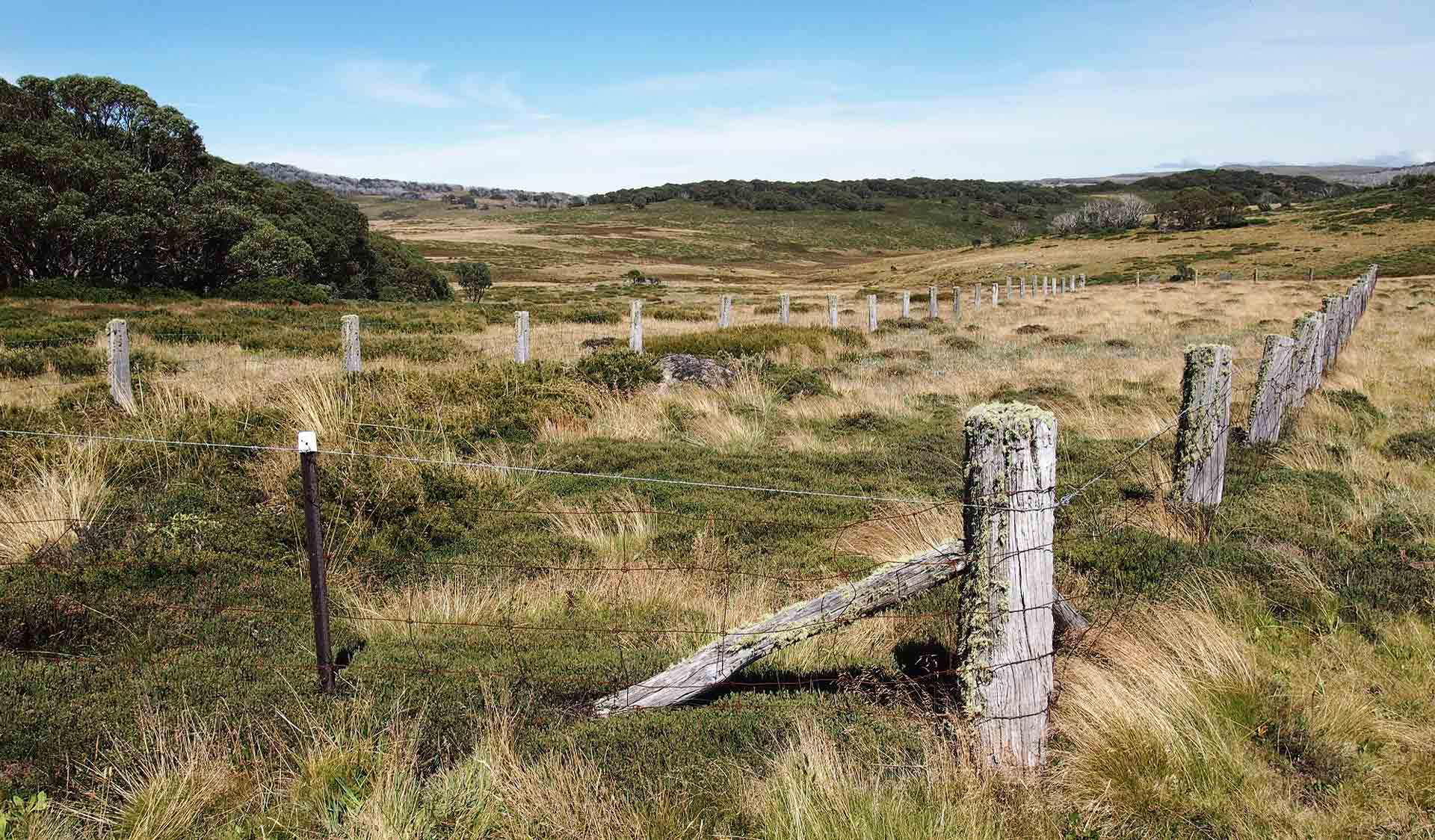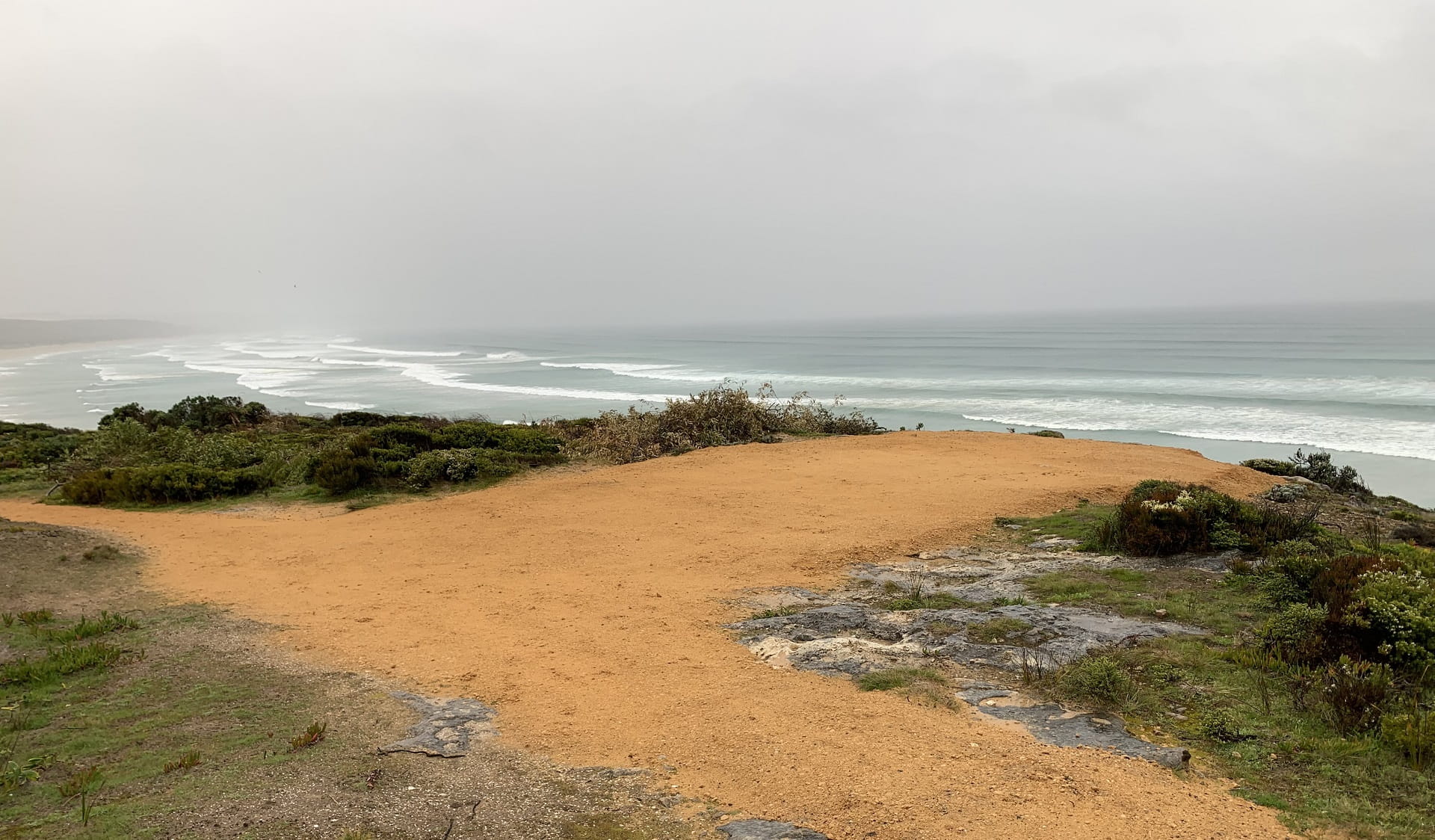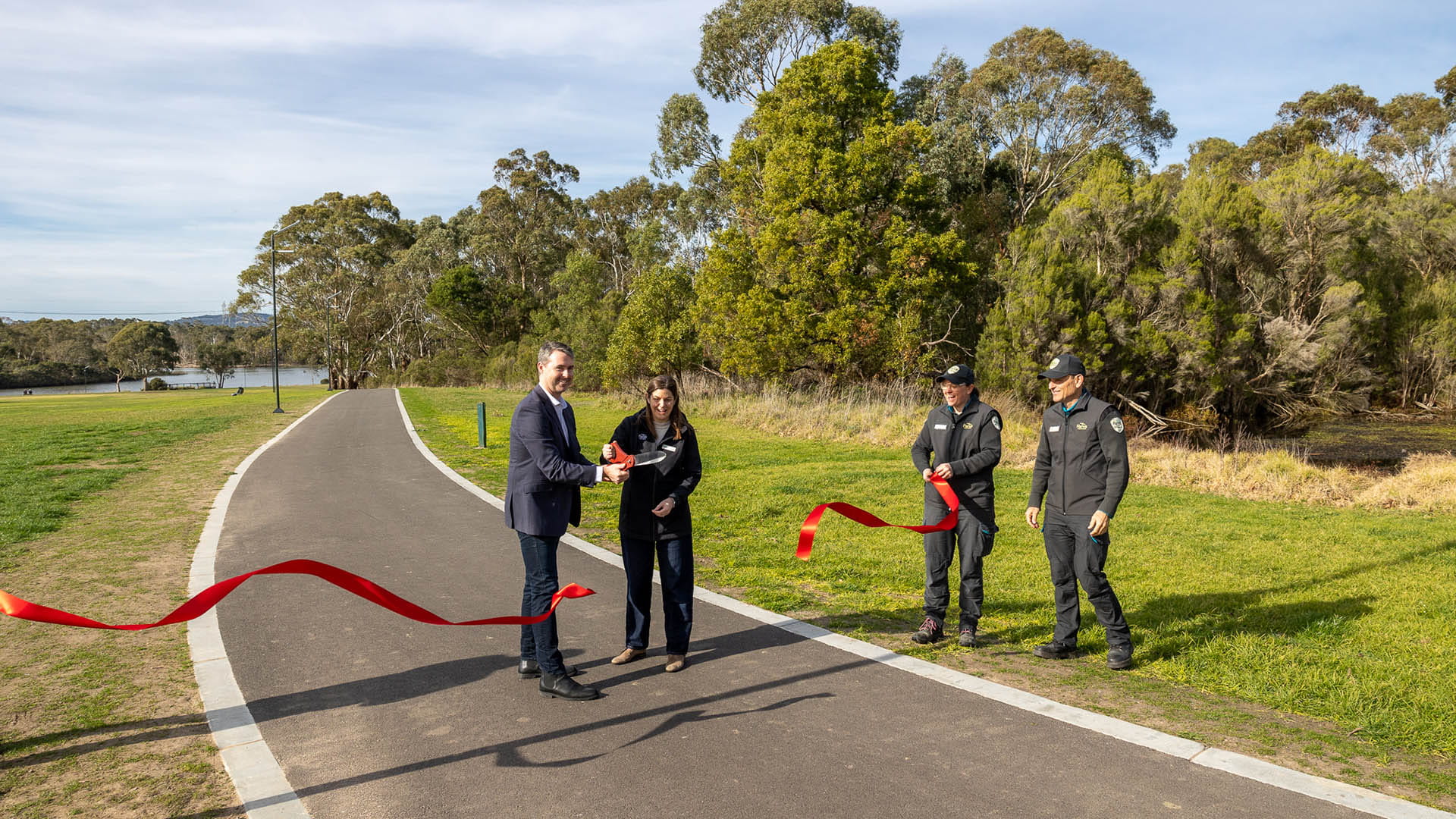Wombat trails help track down source of dangerous invasive weed
Monday 9 October, 2023
Visitors to national parks are reminded to clean their shoes, clothes and gear after each park visit, as an invasive weed is detected for the first time in Victoria at Wilsons Promontory National Park.
In early 2022, specialist weed management contractors discovered, almost by accident, an infestation of the highly invasive weed, Blue Hound's Tongue, which has spread along wombat tracks in the area.
Unfortunately, it seems the wombats have been a perfect ally for the invasive weed, spreading seeds stuck to their fur.
The infestation at Tidal River, the popular campground on the western coast of the Promontory, seems to be closely linked to the network of wombat tracks in the area.
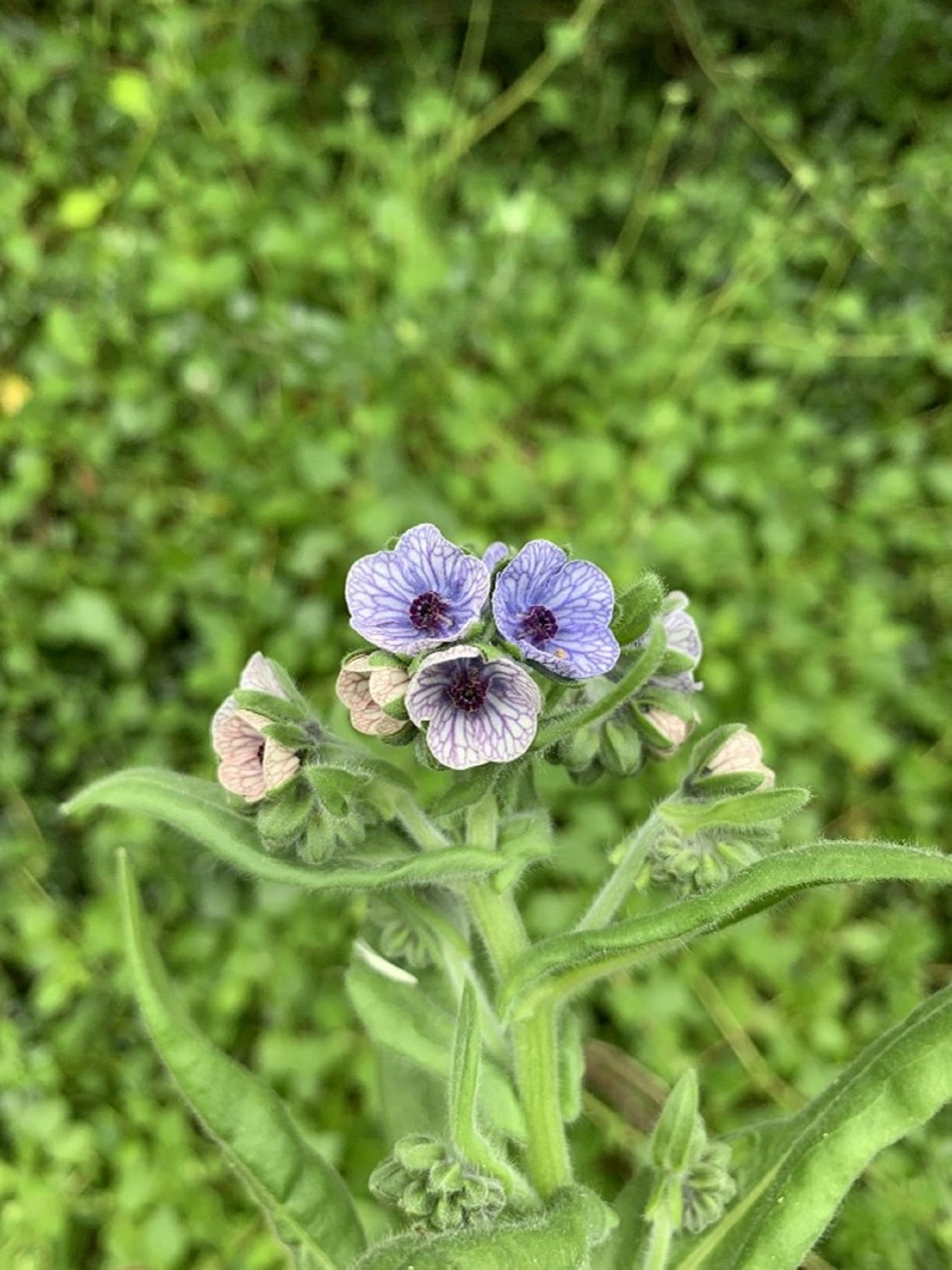
Like many weeds, Blue Hound's Tongue is difficult to identify. Its distinguishing features are its bright blue or pink flowers with dark veins, but it's only in flower for a small window of its life.
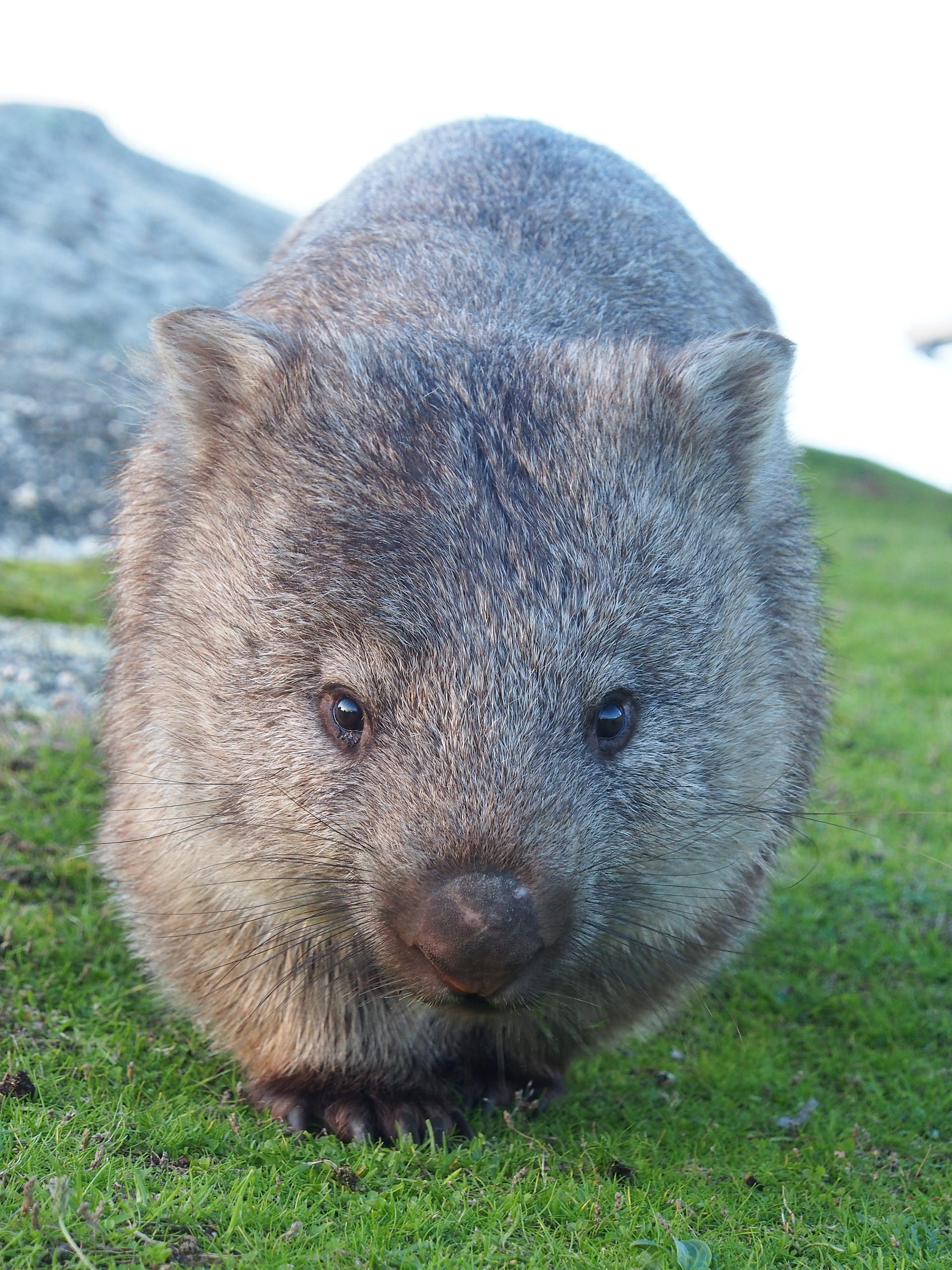
Blue Hound's Tongue produces seed capsules covered with little hooks, specially designed to stick to animals (such as wombats) and travel to new places to invade.
Blue Hound's Tongue – the deceptive invader
Originally found in the Mediterranean region of southern Europe, Blue Hound's tongue is a fast-growing plant that produces pretty bright blue flowers.
The highly invasive weed poses a serious biosecurity threat in Australia as its leaves are lethal to livestock. It spreads quickly just like its close relative Paterson’s Curse - a widespread agricultural weed already established in Victoria.
Like many weeds, Blue Hound's Tongue is difficult to identify, even to the trained eye. Its distinguishing features are its bright blue or pink flowers with dark veins, but it’s only in flower for a small window of its life.
Adding to the difficulty in correctly identifying it - there are four other weed species that look similar to Blue Hound's Tongue and at least five native Victorian plants that also look similar (four of which naturally occur at Wilsons Prom).
This is the first record of Blue Hound's Tongue in Victoria, having previously only been recorded in New South Wales. The next closest known population is in Eden, a 530 kilometre drive away.
Parks Victoria’s Chief Conservation Scientist Dr Mark Norman says “Small weed infestations can go undetected for many years until discovered. We are fortunate to have experts in the park that helped to ID this weed early.”
The most likely explanation for how it spread to Wilsons Prom is by a park visitor. The plant produces seed capsules covered with little hooks, specially designed to stick to animals and travel to new places to invade. Seeds easily stick to people’s clothing, shoes and gear, being transported around the world.
What are you doing about it?
Since its detection at Tidal River, Parks Victoria, the Department of Energy, Environment and Climate Action (DEECA) and Agriculture Victoria have worked together to quickly tackle the weed infestation.
“We’re grateful for the support from plant and invasive weed experts in the private sector, DEECA, the Royal Botanic Gardens of Victoria and Agriculture Victoria to correctly identify the weed and begin to control it,” says Dr Mark Norman.
“Given its seeds are viable for two to three years, we’ll use the surveying and treatment data collected in 2022 to guide future management of Blue Hound's Tongue.”
“We plan to undertake annual surveys and treat areas around Tidal River where Blue Hound's Tongue was found. To avoid missing any outlying infestations, we’ll also survey the broader area.”
“Due to the nature of Blue Hound’s Tongue’s life cycle, we won’t be able to confidently eradicate the species from Tidal River for at least five years. The seed can remain viable in the soil for up to three years so any new plants found emerging will need to be treated before they produce seed. Consistently monitoring and treating the infestation areas to ensure no new seed is produced will be key to the success of eradicating this dangerous weed from Wilsons Promontory National Park and Victoria.”
This discovery and rapid action are part of a much larger coordinated effort to increase environmental protection at Wilsons Prom.
The weed infestation was discovered while contractors were managing weeds as part of Parks Victoria’s ramped up environmental conservation works, delivered through the ‘Prom Sanctuary’ project.
Through construction of a predator and deer-proof fence across the entrance to the national park and parallel conservation programs, the Prom Sanctuary Project will turn Wilsons Promontory National Park into a 50,000 hectare climate change safe haven, where Victoria’s rich wildlife are supported, habitats are restored and lost species are returned - all free from the pressures of introduced predators, pests and weeds.
For more information on the Prom Sanctuary project, visit www.parks.vic.gov.au/get-into-nature/conservation-and-science/conserving-our-parks/wilsons-prom-sanctuary.
Tips for park visitors
- Stay on formed paths. We provide an extensive network of walking paths for visitors to use for moving around Wilsons Promontory National Park. Not only do they help you stay safe, see the best views, and avoid getting lost, but they also protect the surrounding environment. Any time you leave the path, you damage plants and habitat, and risk spreading weeds and diseases into the rest of the park. Parks Victoria regularly maintains walking tracks which includes weeding along the trackside. But if you venture further, there’s no telling how far you can unintentionally spread something.
- Clean your boots, clothes and hiking or camping gear. Weeds and diseases love to hitch a ride to our shoes, socks, tent pegs – anything they can cling on to! Cleaning your gear before and after visiting parks is a simple way to prevent transmission across parks, states and countries.
- Report any sightings to Parks Victoria. If you spot Blue Hound's Tongue at Wilsons Prom, let a local ranger know or give us a call on 13 1963.


